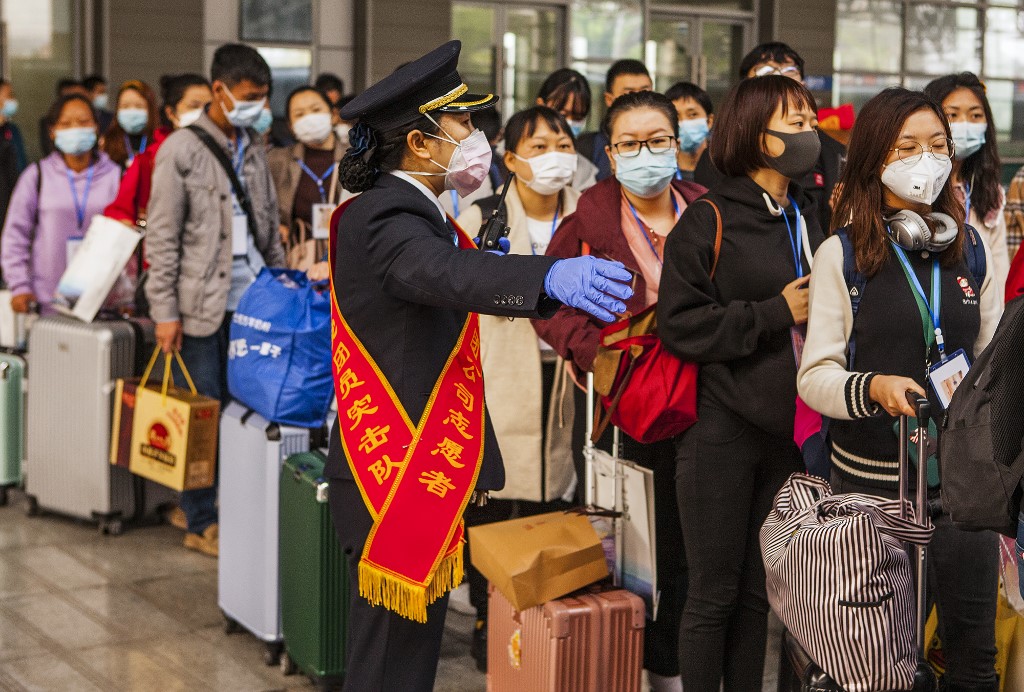(ATF) A raft of new regulations came into force in China on Friday – May Day – including several that will have an impact on business people. The government allowed changes in regard to mining and mineral rights, enacted stricter penalties for bad bosses who fail to pay migrant workers, plus regulations related to crop diseases and insect pests.
It has also introduced interim measures for insurance asset management products, and allowed the use of electronic data in civil law cases.
Here is a short summary of the new measures:
Approval and decentralization of some mineral rights
The Ministry of Natural Resources issued an announcement saying that from May 1 this year, the registration of mineral resources other than the 14 important strategic minerals is now delegated to local authorities. (The important ‘mineral resources’ include petroleum, hydrocarbon natural gas, shale gas, natural gas hydrate, radioactive minerals, tungsten, rare earth, tin, antimony, molybdenum, cobalt, lithium, and potassium).
This means that follow-up registration of 11 kinds of minerals – such as coal, coal-bed methane, iron, chromium, copper, aluminium, gold, nickel, zirconium, phosphorous, and fluorite – will be handled by the provincial natural resources authority.
Other mineral exploration rights, mining rights, and approved trial mining and approval to demarcate the scope of a mining area, and subsequent registration matters shall be handled by the provincial or natural resources departments at the provincial level or below.
Interim Measures for the Handling of Insurance Asset Management Products
A new law on “Interim Measures for the Management of Insurance Asset Management Products” also took effect on May 1, 2020.
These “measures” aim to implement new regulations on asset management and clarify common requirements of the three types of insurance asset management products. In a follow-up, the China Banking and Insurance Regulatory Commission will also release supporting rules for debt investment plans, equity investment plans and portfolio insurance asset management products, with further refinements to regulatory standards, so improvements to the policies are expected.
Stricter penalties for bad bosses
The regulations on Guaranteeing the Payment of Wages for Migrant Workers came into effect on May 1, 2020. These have increased the punishment for violations of the law, creating an atmosphere whereby bosses “dare not to owe wages.” Government human resources and social security administrative departments can order payment within a time limit, or following compensation. If it is suspected to constitute the crime of refusing to pay workers for their labor, it shall be promptly transferred to a judicial organ to pursue criminal responsibility.
Regulations on the Prevention and Control of Crop Diseases and Insect Pests
Regulations on the Prevention and Control of Crop Diseases and Insect Pests also came into effect on May 1, 2020. These stipulate that the people’s governments at and above the county level shall strengthen the organization and leadership of the prevention and control of crop diseases and insect pests.
Competent agricultural and rural departments of the people’s governments at and above the county level shall be held responsible for the supervision and management to prevent and control crop diseases and insect pests. Operators of agricultural production should do a good job of prevention and control within the scope of their work, and actively cooperate with people’s governments at all levels and relevant departments to carry out prevention and control work.
Data can now be used in civil law trials
A very significant new law came from the Supreme People’s Court, which amended the Provisions on Evidence in Civil Procedure and took effect on May 1, 2020. The revised decision made detailed provisions on the scope of electronic data, and also stipulated rules for the review and judgment of electronic data, and ‘improved’ the rules system for electronic data evidence.
According to this revised decision, electronic data includes information published by web platforms such as webpages, blogs, and microblogs; communication information of network application services such as mobile-phone text messages, emails, instant messaging, and communication groups that have user registration information, or identity authentication information, electronic transaction records, communication records, login logs and other information; documents, pictures, audio, video, digital certificates, computer programs and other electronic files; other information that can be stored, processed, and transmitted in digital form to prove the facts of the case are all admissable.
The revised decision stipulates that the People’s Court shall make a comprehensive judgment on the authenticity of electronic data in accordance with the seven factors such as the integrity and reliability of the hardware and software environment of the computer system on which the electronic data is generated, stored, and transmitted. The amendment decision also clearly stipulates that if the content of the electronic data is notarized by a notary, the People’s Court shall confirm its authenticity, unless there is contrary evidence to sufficiently overturn said evidence.
Traffic fines
From May 1, traffic fines can be paid in any police station in the country, rather in the jurisdictions where the incident took place. This is mostly due to traffic fines resulting from road safety violations recorded by traffic technology monitoring equipment. According to a notice issued by the ministries of Finance and Public Security, plus the People’s Bank of China on the implementation of cross-provincial offsite traffic fines, motor vehicle drivers can handle off-site traffic violations in the traffic management department of the public security organs anywhere in the country.
NDRC cuts internal government pricing by 30%
The National Development and Reform Commission has revised the “Central Pricing Catalogue” (2015 edition), with changes taking off from last Friday – May 1, 2020.
The Central Pricing Catalogue is a list that regulates the pricing authority and scope of relevant departments of the State Council. Since 2015, the NDRC and relevant departments have continued to promote a market-oriented reform of important commodity and service prices. Compared with the current Central Pricing Catalogue, the revised pricing items have been reduced by nearly 30%.
























